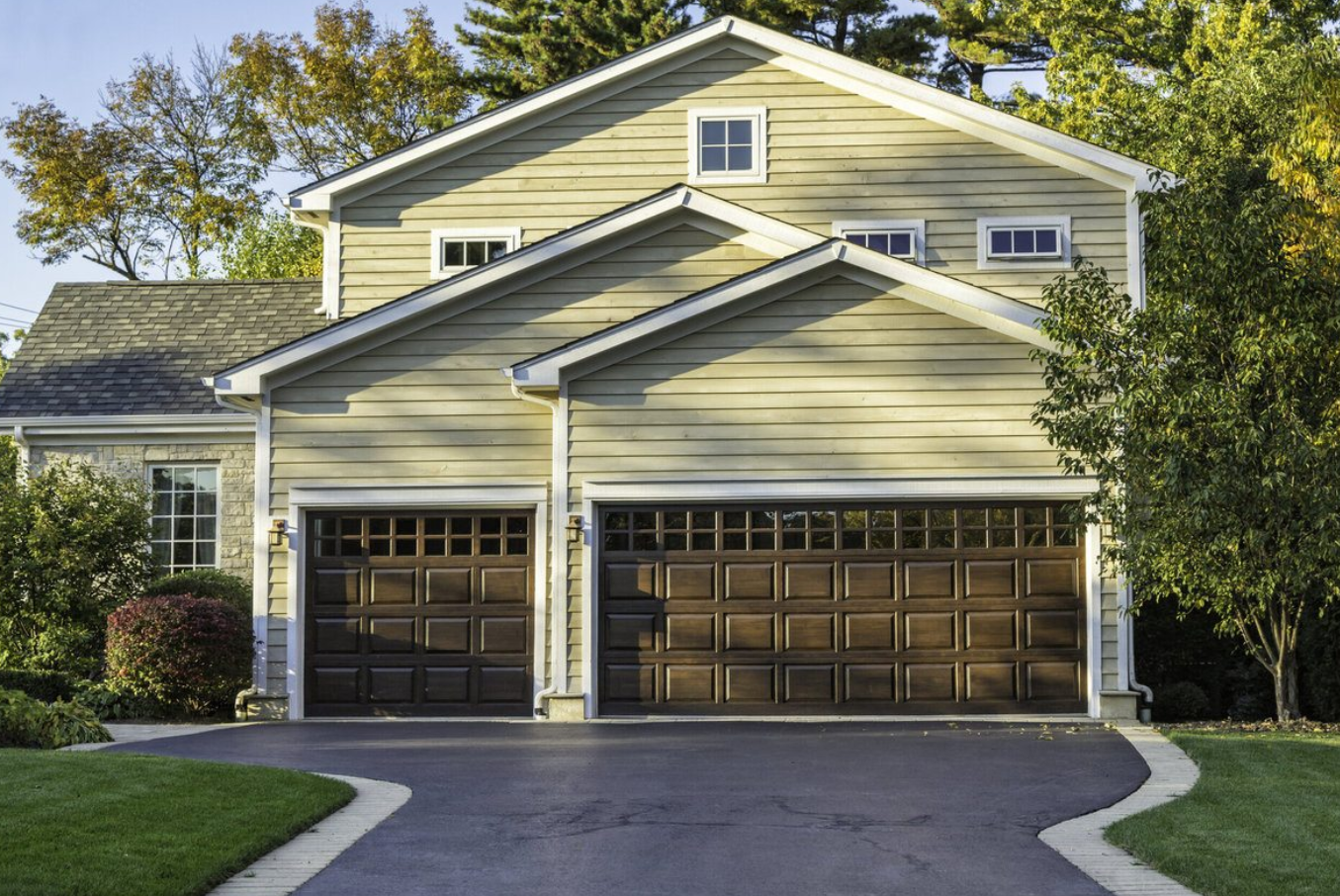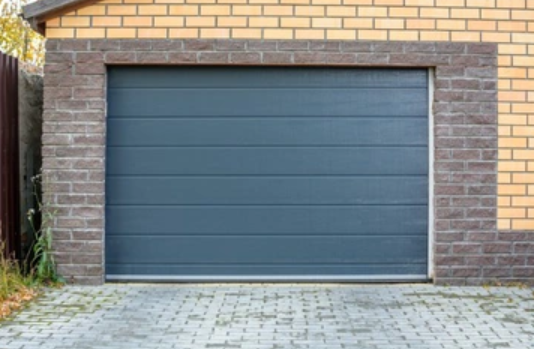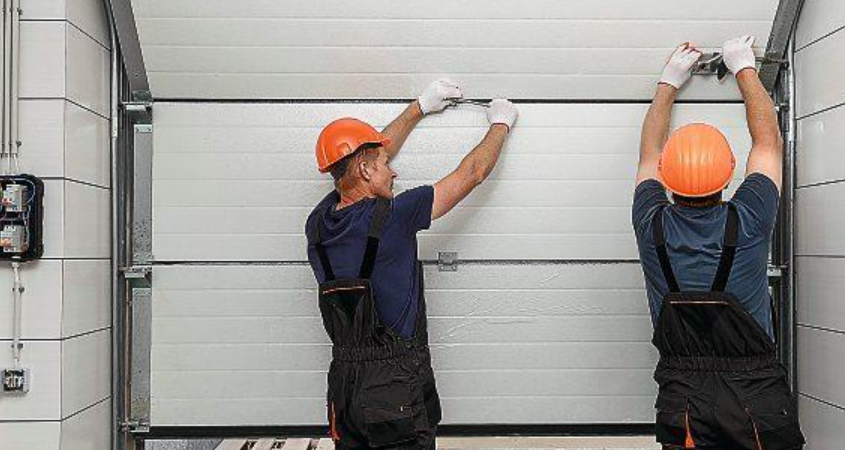A good garage door is essential for any homeowner, as it plays a significant role in enhancing the home’s security, energy efficiency, and curb appeal. A well-functioning garage door not only safeguards your vehicle and personal belongings but also acts as an additional layer of protection for your home. Furthermore, a high-quality garage door can increase your home’s value, making it an important consideration when investing in home improvements.

Factors to Consider when selecting a Garage Door
Selecting the right garage door involves considering several factors that contribute to its overall performance and aesthetics. These factors include types of garage doors, material options, insulation and energy efficiency, durability and maintenance requirements, safety and security features, aesthetics and curb appeal, ease of operation and functionality, and professional installation and warranty. By evaluating each of these aspects, homeowners can make an informed decision when choosing the ideal garage door that meets their needs, preferences, and budget.
Material Options
Steel
Steel garage doors are known for their durability, strength, and affordability. They are resistant to warping, cracking, and rotting, and they can be easily maintained. Steel doors come in various gauges, with thicker options providing greater strength and insulation. These doors can be painted or finished to suit your home’s aesthetics, although they can be prone to rust in humid environments.
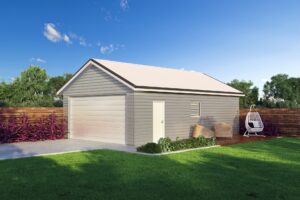
Aluminum
Aluminum garage doors are lightweight, corrosion-resistant, and require minimal maintenance. Their lightweight nature puts less strain on the door’s operating mechanism, contributing to longer life and smoother operation. Aluminum doors are a popular choice for modern and contemporary homes due to their sleek design options. However, they are more prone to dents than steel doors.
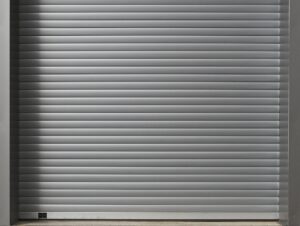
Wood
Wood garage doors offer a natural, warm, and classic appearance that can complement many home styles. They can be customized in various designs, colors, and finishes. Despite their aesthetic appeal, wood doors require regular maintenance, such as painting or staining, to prevent warping, rotting, and insect damage. Additionally, wood doors can be heavier and more expensive than other material options.
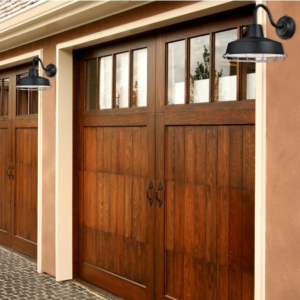
Fiberglass
Fiberglass garage doors are lightweight, low-maintenance, and resistant to rust and rot. They can mimic the appearance of wood, offering an attractive alternative for those who prefer a more natural look without the maintenance requirements of wood. Fiberglass doors provide excellent insulation and can withstand harsh weather conditions. However, they can be more expensive and may become brittle in extreme cold temperatures.
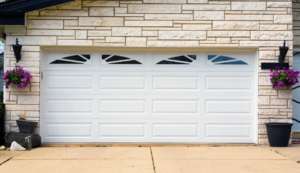
Vinyl
Vinyl garage doors are low-maintenance, durable, and resistant to dents, scratches, and rust. They are an excellent choice for homeowners seeking an easy-to-care-for option, as they do not require painting or staining. Vinyl doors provide good insulation and are available in various colors and styles. However, they may have limited design options and can be more expensive than steel or aluminum doors.
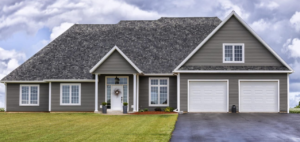
Insulation and Energy Efficiency
Single-Layer Doors
Single-layer garage doors consist of a single sheet of material, typically steel, without any insulation. While they are the most affordable option, they provide the least insulation and energy efficiency. These doors are suitable for detached garages or in climates where insulation is not a significant concern.
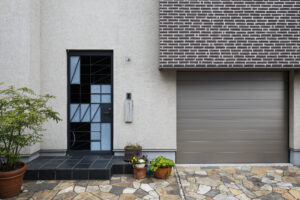
Double-Layer Doors
Double-layer garage doors feature an additional layer of insulation, usually polystyrene or polyurethane foam, attached to the back of the door. This added layer significantly improves the door’s energy efficiency and insulating properties. Double-layer doors provide better temperature control in the garage, making them suitable for attached garages or in regions with moderate climates.
Triple-Layer Doors
Triple-layer garage doors are the most insulated and energy-efficient option. They feature two layers of insulation sandwiched between the exterior and interior panels. These doors provide superior temperature control and sound insulation, making them an ideal choice for attached garages, living spaces above the garage, or regions with extreme weather conditions.
Impact on Energy Consumption and Utility Costs
Investing in an insulated garage door can significantly impact your home’s overall energy consumption and utility costs. An energy-efficient door helps maintain a consistent temperature in the garage, reducing heat transfer between the garage and adjacent living spaces. This ultimately decreases the amount of energy needed to heat or cool your home, lowering your utility bills and contributing to a more environmentally friendly home.
Durability and Maintenance Requirements
Material-Specific maintenance needs
Each garage door material comes with its own maintenance requirements. Steel and aluminum doors generally require minimal maintenance, such as occasional cleaning and lubrication of moving parts. Wood doors, on the other hand, need regular painting or staining to protect them from rot, warping, and insect damage. Fiberglass doors are low-maintenance but may require occasional cleaning and polishing to maintain their appearance. Vinyl doors are known for their low maintenance, only requiring occasional cleaning with mild soap and water.
Lifespan and Wear Resistance
The lifespan and wear resistance of a garage door are heavily influenced by the chosen material and quality of construction. Steel and aluminum doors offer excellent durability, with a lifespan of 20-30 years if properly maintained. Wood doors can also last for decades if regularly maintained, but they are more susceptible to wear and tear due to weather exposure. Fiberglass and vinyl doors are known for their durability and resistance to dents and scratches, contributing to a long-lasting and attractive garage door.
Impact of Climate and Weather Conditions
Climate and weather conditions can significantly impact a garage door’s durability and maintenance needs. In humid or coastal environments, corrosion-resistant materials like aluminum or fiberglass are ideal choices to prevent rust and deterioration. In regions with extreme temperature fluctuations, well-insulated garage doors are necessary to maintain energy efficiency and protect the door from warping or cracking due to temperature changes. Additionally, homeowners in areas prone to high winds or hurricanes should consider reinforced garage doors designed to withstand these weather conditions.
Safety and Security features
Locking Mechanisms
A good garage door should have reliable and secure locking mechanisms to prevent unauthorized access. Manual garage doors often come with side locks, slide bolts, or padlock-compatible handles. For automatic garage doors, an electric opener with a rolling code feature adds an extra layer of security by changing the access code after every use, making it difficult for potential intruders to gain entry.
Reinforced Construction
Reinforced garage doors are designed to withstand extreme weather conditions and potential break-ins. These doors may include additional bracing, heavier gauge materials, or impact-resistant panels. Homeowners living in regions prone to hurricanes or high winds should consider investing in reinforced doors to provide added protection against potential damage or intrusion.
Automatic Reverse Systems
Garage door openers equipped with an automatic reverse system are an essential safety feature. This system utilizes sensors that detect obstacles in the path of the closing door, causing the door to automatically reverse direction and preventing potential injury or damage to property. It is crucial to regularly check and maintain this feature to ensure it functions correctly.
Advanced Security Technology
Modern garage doors can be integrated with advanced garage security technology, such as smartphone connectivity, allowing homeowners to monitor and control the door remotely. Other security features may include alarm systems, security cameras, or motion-activated lights that deter potential intruders. Investing in a garage door with advanced security features can enhance the overall safety and security of your home.
Aesthetics and Curb Appeal
Design Options and Customization
A good garage door should complement your home’s architecture and enhance its curb appeal. Garage doors are available in various styles, colors, finishes, and materials to suit a wide range of design preferences. Customization options may include decorative hardware, window inserts, or unique panel designs that can help you create a cohesive look with your home’s exterior.
Integration with Home Architecture and Style
It is essential to choose a garage door that harmoniously integrates with your home’s architecture and style. For instance, a traditional wood door with raised panels and decorative hardware is well-suited for a colonial-style home, while a sleek aluminum or glass door might be better suited for a modern or contemporary design. By selecting a garage door that complements your home’s aesthetic, you can create a visually appealing and cohesive appearance.
Impact on Home value
A visually appealing and functional garage door can have a significant impact on your home’s value. An attractive, well-maintained garage door not only improves curb appeal but also indicates that the home is well cared for, potentially attracting more buyers and increasing resale value. Investing in a good garage door is a wise decision that can enhance your home’s appearance and provide a substantial return on investment.
Ease of Operation and Functionality
Manual vs. Automatic Garage Doors
The choice between manual and automatic garage doors depends on your preferences, budget, and lifestyle. Manual doors are typically more affordable and straightforward, but they require physical effort to open and close, which can be inconvenient in certain situations. Automatic garage doors, on the other hand, offer increased convenience with the use of a remote control or wall-mounted button, making them more suitable for people with mobility issues or those who frequently use their garage.
Smooth and Quiet operation
A good garage door should operate smoothly and quietly, minimizing disruptions to your home and neighbors. This can be achieved through the use of high-quality hardware, well-balanced doors, and regular maintenance of moving parts, such as springs, rollers, and hinges. Additionally, belt-driven or direct-drive garage door openers are known for their quiet operation compared to traditional chain-driven systems, making them a more suitable choice for attached garages or homes with living spaces above the garage.
Accessibility and User-Friendliness
A user-friendly garage door should be easy to operate and accessible for all household members. Features like illuminated wall-mounted buttons, remote controls with large buttons, and compatibility with smartphone applications can enhance accessibility for users of all ages and abilities. Additionally, some garage door openers offer battery backup systems, ensuring continued operation during power outages and providing peace of mind for homeowners.
Professional Installation and Warranty
Importance of proper Installation
Proper installation of a garage door is crucial for its optimal performance, safety, and longevity. An improperly installed door may not operate smoothly, leading to potential damage, reduced lifespan, or safety risks. Hiring a professional installer ensures that the garage door is installed correctly, adhering to the manufacturer’s guidelines and local building codes. Professional installation also reduces the risk of injury during the installation process, as experienced technicians are familiar with the proper handling of heavy doors and high-tension springs.
Availability of Warranty and after-sales support
A good garage door should come with a warranty, providing coverage for defects in materials or workmanship. Warranties can vary in length and terms, with some manufacturers offering extended coverage for specific components, such as hardware or insulation. When selecting a garage door, it is essential to consider the warranty terms and the reputation of the manufacturer or installer for providing reliable after-sales support. In addition to the warranty, ongoing maintenance and repair services can ensure that your garage door continues to operate safely and efficiently throughout its lifespan.
Conclusion
When choosing the ideal garage door, it is essential to balance various factors such as material, insulation, durability, safety features, aesthetics, ease of operation, and professional installation and warranty. By carefully considering these aspects, homeowners can make an informed decision that meets their needs, preferences, and budget. It is important to remember that the cheapest option may not always be the best, as investing in a high-quality garage door can provide long-term benefits in terms of safety, energy efficiency, and home value.
A good garage door plays a significant role in enhancing the overall home experience by providing security, energy efficiency, and curb appeal. A well-functioning and attractive garage door not only protects your vehicle and personal belongings but also contributes to the comfort and aesthetic appeal of your home. By selecting a garage door that combines functionality, durability, and style, homeowners can enjoy the numerous benefits of a well-chosen garage door, improving their overall quality of life.

